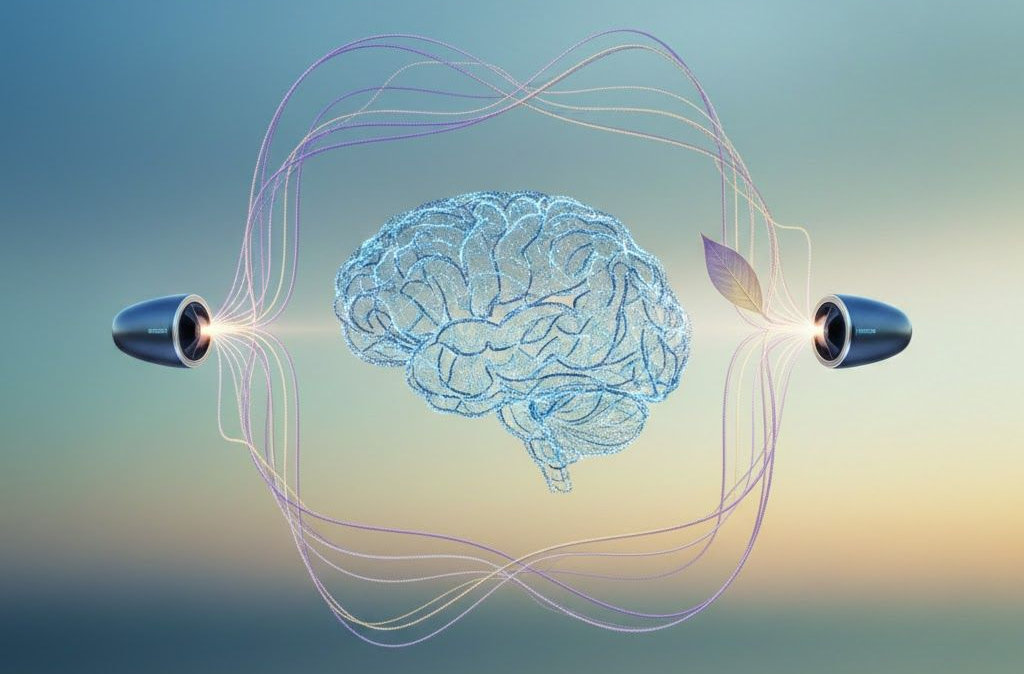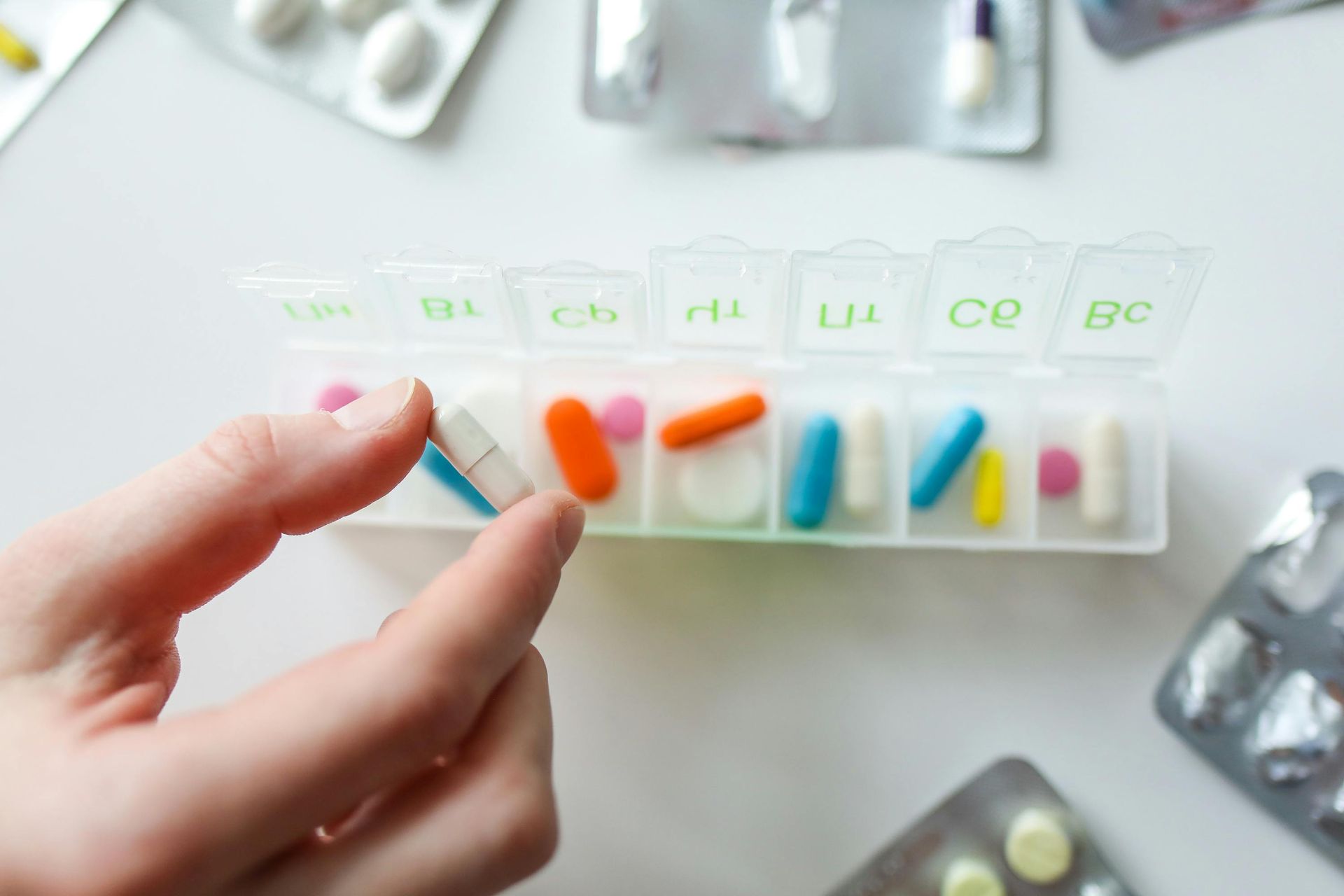Ketamine for PTSD: Science, Benefits, and What to Expect

Kimberly Mercille • September 4, 2025
Living with post-traumatic stress disorder (PTSD) can be debilitating. Nightmares, flashbacks, and a constant sense of being “on edge” can interfere with work, relationships, and overall quality of life. If you’ve tried therapy or medications without lasting relief, you’re not alone—and there may be another option. At the Albany Clinic in Carbondale, Illinois, we specialize in ketamine therapy as a promising treatment for PTSD.
Understanding PTSD
Post-traumatic stress disorder (PTSD) develops after experiencing or witnessing trauma. While everyone responds to trauma differently, common symptoms include:
- Intrusive memories or flashbacks
- Avoidance of reminders of the trauma
- Emotional numbness or detachment
- Heightened anxiety, irritability, or trouble sleeping
Some people also develop
complex PTSD (CPTSD), which stems from repeated or prolonged trauma. CPTSD often comes with additional challenges, such as difficulty regulating emotions or maintaining healthy relationships.
Current Treatments and Their Limitations
The most common treatments for PTSD include cognitive behavioral therapy (CBT), eye movement desensitization and reprocessing (EMDR), and antidepressant medications.
For many people, these treatments can be helpful. However, they also come with challenges:
- Medications may take weeks to work and don’t help everyone.
- Therapy can take months or years to create lasting change.
- Therapies can be difficult to engage with, as they involve discussing the trauma, which can be distressing or may cause someone to shut down emotionally.
- Some individuals continue to experience severe symptoms despite treatment.
This is where ketamine therapy offers a new avenue of hope.
How Ketamine May Help PTSD
Ketamine works differently from traditional antidepressants. Instead of gradually altering brain chemistry, ketamine acts quickly on key brain circuits involved in mood and fear.
- Rebalancing brain activity: Ketamine boosts activity in the prefrontal cortex, the part of the brain that helps regulate emotions. It also decreases activity in the amygdala, the brain’s fear center, helping reduce anxiety and hypervigilance.
- Promoting neuroplasticity: Ketamine encourages new connections between brain areas, helping “rewire” pathways associated with PTSD symptoms.
- Supporting
fear extinction: Ketamine supports fear extinction, the process by which the brain ‘unlearns’ fearful responses to things it expects to be threatening. This is especially important in PTSD, where people may react to safe situations or cues as if they were actual threats.
Benefits of Ketamine for PTSD
Research continues to grow, but studies and clinical experience have shown several promising benefits:
- Rapid relief: Many patients notice improvements within hours to days, rather than weeks. This can be especially important during a mental health crisis or for those struggling with suicidal thoughts.
- Effective when other treatments have failed: Ketamine can offer relief even for people who haven’t responded to medications or therapy.
- Sustained improvement: With a series of treatments, many patients experience lasting relief from PTSD symptoms.
- Increases the benefits of other therapies: Ketamine may speed up the outcomes of other trauma-based therapies, such as prolonged exposure therapy.
In a 2021 study, people with severe PTSD received either ketamine or a comparison drug over two weeks. Those given ketamine showed much faster and greater improvement in PTSD and depression symptoms. About 67% had significantly improved symptoms, with the biggest differences in intrusive memories, avoidance, and negative thoughts and mood. The treatment was also well-tolerated with few adverse effects.
Ketamine Treatment for PTSD at the Albany Clinic
At the Albany Clinic in Carbondale, Illinois, we are dedicated to providing safe, effective ketamine therapy for people with PTSD and other psychiatric disorders. We administer ketamine intravenously to support a rapid reduction in symptoms.
Here’s what you can expect:
- A thorough medical and psychiatric evaluation before treatment begins
- Comfortable, private treatment rooms
- Careful monitoring by experienced medical professionals throughout each session
- A personalized treatment plan designed around your needs
During your treatment, you’ll have a small plastic catheter inserted into a vein in your arm, which will deliver ketamine straight into your bloodstream. You may experience mild side effects, such as dizziness and dissociation, which can make you feel disconnected from your body and the world around you. These typically wear off after the session is finished.
The infusion takes 45 minutes to one hour, and you’ll be closely monitored by staff during the infusion and afterwards to ensure your safety. We’ll provide you with guidance on aftercare once you’re done and how to make the most of your new headspace.
Most people with PTSD require multiple infusions to experience sustained, meaningful changes. However, the treatment plan will be tailored according to your unique needs.
Get in Touch Today
If you or a loved one is struggling with PTSD and current treatments haven’t provided the relief you need, ketamine therapy may be an option worth exploring. At the Albany Clinic, we are here to answer your questions and guide you through every step of the process. Get in touch to find out more.






